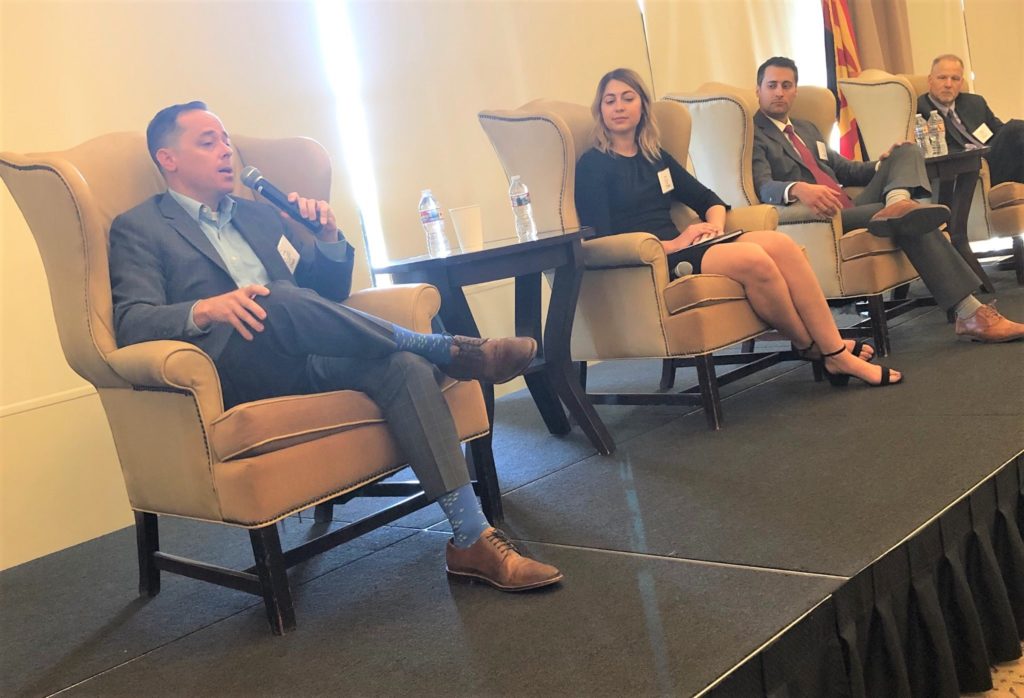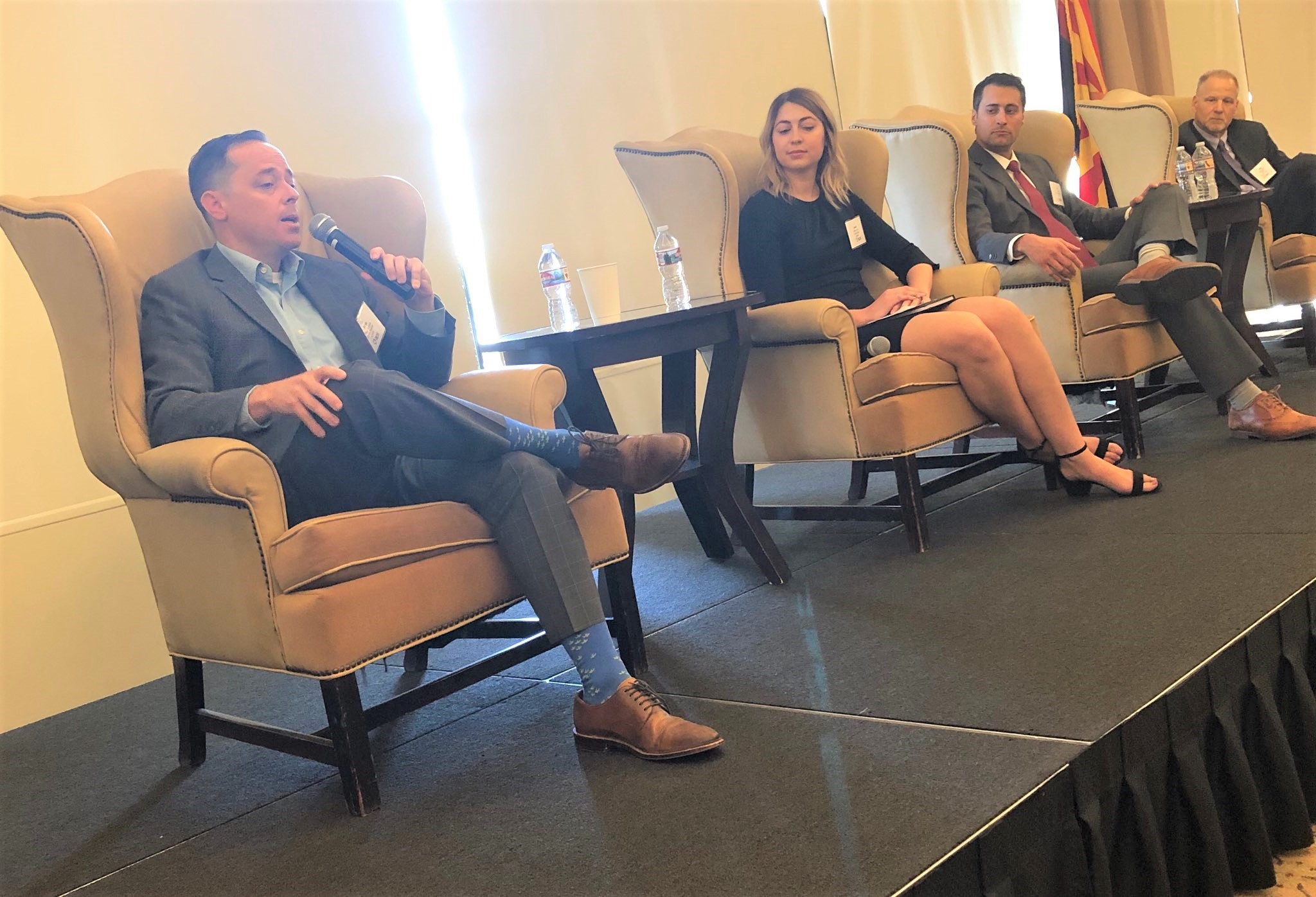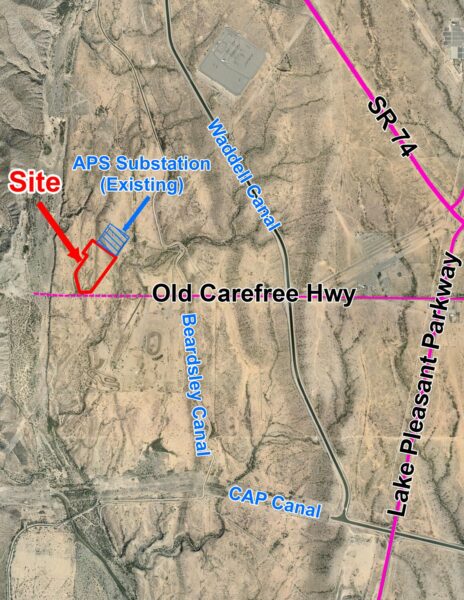
By Mike Sunnucks | Rose Law Group Reporter
The commercial real estate market continues to chug along with strong office demand in Tempe and Chandler, industrial deals in the West Valley and big data centers deals from Goodyear to Mesa.
“The market has been incredibly frothy for quite some time,” said Ryan Sarbinoff, vice president and Phoenix regional manager for commercial real estate brokerage firm Marcus & Millichap.
Sarbinoff points to continued foreign direct commercial real estate investment, especially from Canada, and its attractiveness compared to other investment classes.
“There is still safety and security in the United States,” Sarbinoff said.
But the commercial real estate sector and the economy are not without challenges. Those came up this morning at a Valley Partnership breakfast forum in Phoenix.
Having enough new and existing inventory of office and industrial space and the rising costs of tenant buildouts challenge Phoenix economic development efforts and keeping the economy on track.
“Are we building enough space,” said Jessica Morin, director of market analysis for national research firm CoStar Group.
She points to low office vacancy rates in Tempe and Chandler, two of the most desired submarkets by technology and financial services companies. Morin said top office space in Tempe has vacancy rates of 3 percent compared to 12 percent for the whole region.
The worry is site selectors and employers won’t land jobs in metro Phoenix because the region doesn’t have the space ready to go.
“Product wins projects,” said Micah Miranda, economic development director for the city of Chandler. Chandler is home to a large and expanding Intel semiconductor and research campus as well as Alphabet/Google’s Waymo self-driving car testing.
But Miranda said if the office space isn’t at the fingertips of employers Arizona will miss out on site selections and jobs.
“Unless we have the products folks will skip over us,” Miranda said.
There are office and industrial developments being built and in the works. But there has been a more measured commercial development approach since the last recession.
Pete Wentis, senior vice president with CBRE, said the cost of building out space has risen significantly with increased costs for materials, labor shortages and some of the impacts of U.S. President Donald Trump’s tariffs on Chinese and other imports.
“Those are pushing our office improvement costs through the roof, said Wentis.
The dynamic creates challenges for developers of how and when to outfit suites and building as they try to balance tenants’ immediate needs for space with cost increases.
Still, Wentis sees competitive advantages and gains for metro Phoenix especially for industrial space which now includes data centers.
The CBRE broker told the Valley Partnership forum that data center deals in the West Valley are pushing up land values
Still, the cost of industrial space and development in the West Valley and other Phoenix submarkets is still substantially cheaper than in Los Angeles and Riverside.
Wentis also contends the opening Loop 202 / South Mountain Freeway bypass of Tempe and Phoenix will ease truck and commuter traffic and opens up more economic development both the West and East Valley.
The CRE panel at the Valley Partnership event said labor shortages in the construction and trades position continue to challenge development and growth. But they stressed metro Phoenix needs to do better at marketing and promoting its technology, financial services and biomedical bases.
Morin said the region has continue to move away from its cheaper costs model to economic development. That has long been a selling point for Arizona economic developers poaching jobs from California and Seattle. But the economic development landscape for technology, creative and financial service jobs now also includes markets such as Salt Lake City, Boise, Idaho and Charlotte who also don’t have the high costs of Los Angeles or Silicon Valley.
“There is always going to be somebody that is cheaper than Phoenix,” she said.












